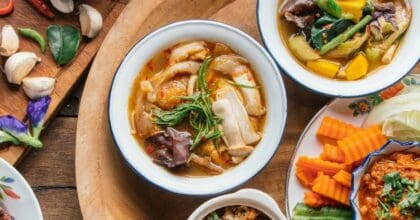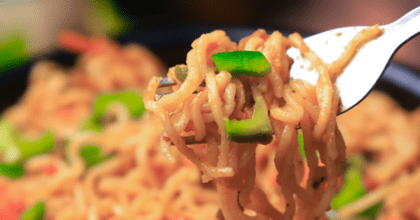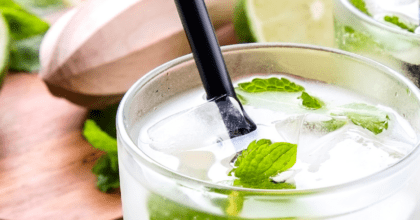Storm brewing for tea industry – could the next generation of tea drinkers be in jeopardy?
A cup of tea. Quintessentially British, an answer to the nation’s problems and a ritualistic tradition upheld for generations. But all this could be about to change as the next generation of drinkers turn their back on the traditional cuppa. Indeed, latest research from Mintel finds that while 88% of Brits aged over 65 drink tea, penetration drops to 73% for younger (15-34 year-old) adults. With ever increasing competition in the soft drink sector and more consumers dropping out of the category than are actually entering it, the next generation of traditional tea drinkers may be in jeopardy.
Furthermore, Mintel’s exclusive consumer research shows that younger consumers are less enamoured with”traditional English tea”than their older counterparts – just over half of 16-24 year olds (53%) drink it regularly (i.e. at least once a week), compared to 68% of over 55s. As a result, despite tea having a large penetration in the UK market with eight in ten UK adults drinking it, tea has been experiencing a long-term decline in usage. Indeed, the proportion of UK adults who drink tea has dropped from 87% in 2006 to 81% in 2010 – at a time when overall soft drinks revenue is on the increase.
With the market value of tea currently standing at £647 million, the standard (or”traditional English breakfast”) tea segment which accounts for by far the majority (89%) of the value sales in the tea market, has seen declining volume sales as a result of failing to resonate as strongly with the younger generation as it does with the old. Instead, this generation are much more likely to be among the 23% of the population who drink standard” english breakfast”tea alongside newer varieties such as herbal/fruit tea (e.g. green tea/rooibos) and speciality (e.g. Assam, Earl Grey) teas. A third (34%) of 16-34 year-old tea drinkers drink all three tea types, but among consumers aged over 55 brought up on traditional tea, this figure declines to 18%.
Jonny Forsyth, Senior Drinks Analyst at Mintel, said:
“Tea is capitalising on the short-term increase in the share of over-65s but failing to convert the younger generations in significant enough numbers to replace those falling out of the market. Our consumer research identifies a younger tea drinking generation who differ markedly from previous generations of tea drinkers. They have a much more adventurous attitude towards drinking tea, enjoying the variety of flitting between standard” english”breakfast, speciality and herbal tea rather than just sticking to one type; and they are keen to try new tea brands and new flavours. “
“What this translates to is a new generation growing up for whom the traditional cuppa is not the be all and end all. Their decision-making process when buying tea is much more conscious than with older generations. For example, many use different kinds of herbal tea dependent on their mood and will decide to have a cup of standard” english”breakfast tea if in need of an energy booster. Unless traditional tea makers resonate with younger tea drinkers, they may find that this is one tradition not passed from one generation to the next. “Jonny continues.
And it seems the decline is not attributable to economic uncertainty either. Ironically, the recent economic downturn has been a short term help to sales. While value sales continue to rise due to rising commodity prices, volume sales from 2005-08 declined 5% (from 82.5m kgs to 78.5m), but 2008/10 saw an 8% increase to 84.6m as consumers spent more time at home and took solace in cheap indulgences – especially ones as psychologically reassuring as standard tea.
“The recent economic climate has played a big part in consumer attitudes to tea and two of the worst winters on record have also assisted the market, not to mention heavy discounting activity. However, the sector remains too reliant on traditional English breakfast tea, which is failing to resonate with younger consumers, and needs to do more to attract new consumers to the health benefits of herbal tea and the premium tasting benefits of speciality. “Jonny adds.
Meanwhile, herbal tea hit the £80 million mark for the first time in 2010 (up from £73 million in 2009) and has grown its share of the market to stand at 11%. However, Mintel’s research reveals that almost a third (31%) of standard tea drinkers do not believe in the health benefits of herbal/fruit teas, which is a problem for a niche sector trying to broaden its user base. Seven in ten (71%) cited inferior taste compared to standard tea as the main reason, with over half (56%) claiming to have tried them but not liked them, around half (51%) saying that they simply do not taste good and almost a third (31%) claiming they do not taste of anything. However, among consumers who drink herbal teas, there is a belief of numerous advantages: some 57% say drinking them helps them to relax, three quarters (75%) like their range of flavours and 64% believe in their health benefits.
-
Mintel StoreGet smart fast with our exclusive market research reports, delivering the latest data, innovation, trends and strategic recommendations....View reports
-
Mintel LeapMintel Leap is a revolutionary new AI-powered platform that will transform your research process....Book a demo







































